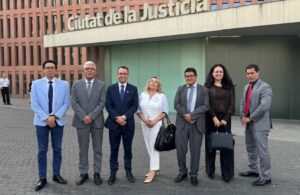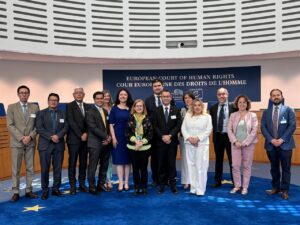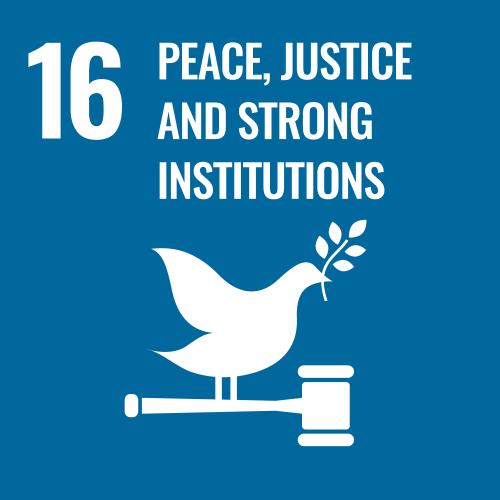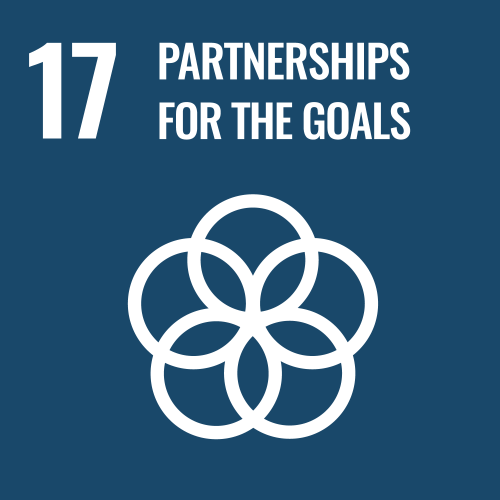
In the framework of the EU police support project for the special police force for the fight against organised crime in Bolivia, the delegation held meetings with representatives of the Supreme Court, the General Council of the Judiciary and the European Court of Human Rights.
A delegation composed of authorities from the Bolivian judicial system has carried out a study visit to Spain and France, in the framework of the EU Police Support to the special police force for the fight against organised crime in Bolivia project. The main objective was to strengthen the judicial career in Bolivia, through the exchange of experiences with their European counterparts. The delegation was composed of Romer Saucedo Gómez and Rosmery Ruiz Martínez, President and Dean of the Supreme Court of Justice; Richard Cristhian Méndez Rosales, President of the Agro-environmental Court; Gabriela Paula Araoz and Carlos Spenser Arancibia, Dean and Councillor of the Council of the Judiciary; and Lucio Valda Martínez and Iván Carballo Medina, Director and Head of Training at the State Judges School.

The delegation held institutional meetings with representatives of the General Council of the Judiciary of Spain, such as Isabel Perelló Doménech, President of the SC and the CGPJ, the promoter of disciplinary action, Ricardo Conde, and other experts in initial and continuous training at the Judicial School based in Madrid and with José María Fernández Seijo, President of the International Relations Commission of the CGPJ. They also attended the awards ceremony of the Observatory against Domestic and Gender Violence 2025 in Madrid, and they were able to learn first-hand about the operation of the Barcelona Judicial Schools.
The agenda ended at the European Court of Human Rights in Strasbourg. There, they were received by its president, Mattias Guyomar, with whom they exchanged best practices on judicial independence policies and their adaptation in Bolivia.
As a result of this experience, the Bolivian authorities have realised the need to modernise and strengthen the judicial career. As a result, they have already begun to consider the possible implementation of key new policies, among which the following stand out:
– The exclusive admission of judges who are graduates of the Judicial School.
– The strengthening of initial and continuous training.
– Improving judicial inspection and accountability mechanisms, with full guarantees of defence.
These measures represent a concrete step towards judicial independence, with the aim of alleviating systemic problems and preventing political interference in the judiciary.

The project director, María Antonia Díez García, who accompanied the delegation throughout the visit, welcomed its success: “In Strasbourg we worked intensively on independence policies and in Barcelona they gathered a multitude of practical ideas to apply in Bolivia. At all times they showed a very high degree of interest and commitment. It was an honour to take them, I felt very proud of my Bolivia”.


